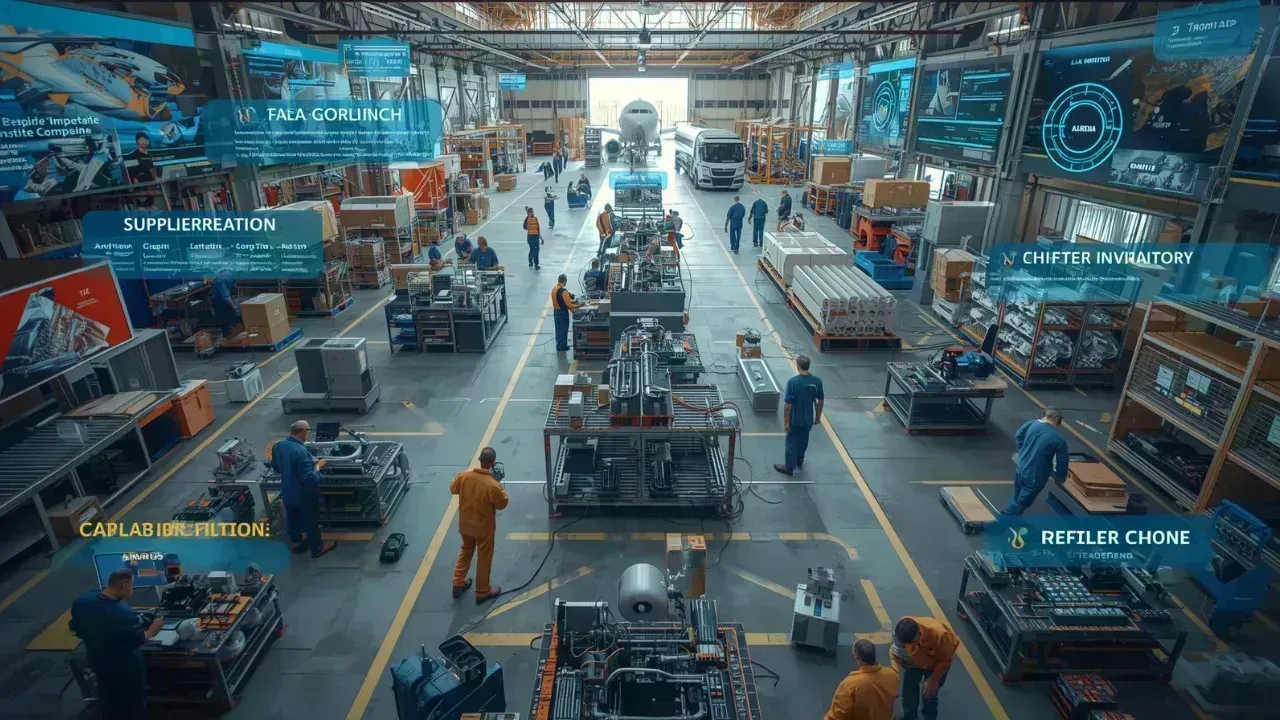
Post by : Shivani
As Airbus accelerates its A320 family production to meet soaring demand, the spotlight is turning to Tier-2 suppliers. These manufacturers, often less visible than their Tier-1 counterparts, are crucial for delivering engines, avionics components, composite materials, and precision parts. Their ability to keep pace directly affects Airbus’s delivery schedules and overall market competitiveness.
Tier-2 suppliers provide specialized parts and subsystems to Tier-1 vendors, who then integrate them into final assemblies. While Tier-1 suppliers have extensive experience handling large-scale orders, Tier-2 companies often operate on smaller capacities, making rapid scaling a challenge.
Some of the most critical Tier-2 suppliers include:
Scaling production in these sectors requires investment in machinery, skilled labor, and quality assurance processes.
Rapid growth brings several hurdles. Supply chain bottlenecks, labor shortages, and rising material costs can threaten timelines. Additionally, smaller firms may struggle to meet Airbus’s stringent quality and safety standards without significant upgrades.
High-demand composites, specialty alloys, and electronic components are experiencing global shortages. Tier-2 suppliers must navigate these constraints while ensuring parts meet rigorous aerospace specifications.
Specialized skills in precision manufacturing and composite technologies are limited. Tier-2 suppliers face intense competition to hire and retain qualified technicians, impacting their ability to expand output quickly.
Airbus is actively supporting Tier-2 suppliers through digital collaboration tools, financial assistance programs, and joint planning initiatives. These efforts aim to streamline production, forecast demand accurately, and reduce the risk of delays.
Through platforms like Skywise, Airbus monitors production progress across all supplier tiers. Predictive analytics highlight potential bottlenecks, allowing suppliers to adjust resources proactively.
Airbus provides training programs for Tier-2 staff to improve efficiency and adherence to quality standards. This helps smaller suppliers scale without compromising compliance with aerospace regulations.
Several Tier-2 companies have successfully scaled operations in partnership with Airbus. For example, a composite parts manufacturer in Germany increased output by 40% in just two years, meeting tight deadlines for A321XLR components. Another electronics supplier in France leveraged AI-driven scheduling to streamline production, ensuring on-time delivery.
Despite support, risks remain. Delays, geopolitical issues, and sudden material shortages can affect output. Airbus mitigates these risks by diversifying suppliers, maintaining buffer inventories, and implementing real-time monitoring of Tier-2 performance.
Airbus encourages Tier-1 vendors to source from multiple Tier-2 suppliers, reducing dependency on a single manufacturer. This strategy minimizes disruption risk while sustaining production growth.
Critical components are stored in buffer inventories near assembly facilities, while just-in-time delivery models ensure minimal downtime on the production line.
As Airbus continues its ambitious ramp-up, Tier-2 suppliers will play a pivotal role in sustaining growth. Investment in automation, workforce development, and digital solutions will be essential to meet rising demand. Those who successfully adapt will gain long-term partnerships with Airbus and access to new markets.
Advanced manufacturing technologies, such as additive manufacturing and AI-driven quality control, provide Tier-2 suppliers with tools to scale efficiently. Adoption of these innovations will separate leaders from laggards in the competitive aerospace supply chain.
Successful Tier-2 suppliers view collaboration with Airbus not just as compliance, but as a strategic advantage. Sharing insights, embracing transparency, and investing in joint problem-solving ensures resilience and long-term growth.
In conclusion, while the Tier-2 supply chain faces challenges under Airbus’s accelerated production targets, proactive strategies, digital integration, and investment in technology and skills are helping suppliers meet demand. The success of Airbus’s ramp-up depends not only on its assembly lines but on the resilience and capability of its extended supply network.
#AirbusSupplyChain #Tier2Manufacturers #A320Production #AerospaceSuppliers #CompositeParts #PrecisionMachining #AvionicsComponents #SupplierCrunch #ManufacturingChallenges










Advances in Aerospace Technology and Commercial Aviation Recovery
Insights into breakthrough aerospace technologies and commercial aviation’s recovery amid 2025 chall

Defense Modernization and Strategic Spending Trends
Explore key trends in global defense modernization and strategic military spending shaping 2025 secu

Tens of Thousands Protest in Serbia on Anniversary of Deadly Roof Collapse
Tens of thousands in Novi Sad mark a year since a deadly station roof collapse that killed 16, prote

Canada PM Carney Apologizes to Trump Over Controversial Reagan Anti-Tariff Ad
Canadian PM Mark Carney apologized to President Trump over an Ontario anti-tariff ad quoting Reagan,

The ad that stirred a hornets nest, and made Canadian PM Carney say sorry to Trump
Canadian PM Mark Carney apologizes to US President Trump after a tariff-related ad causes diplomatic

Bengaluru-Mumbai Superfast Train Approved After 30-Year Wait
Railways approves new superfast train connecting Bengaluru and Mumbai, ending a 30-year demand, easi